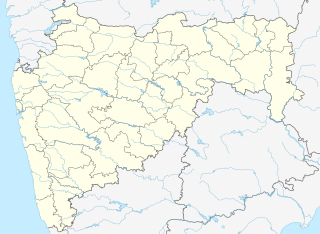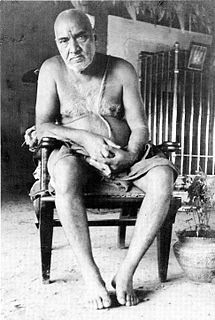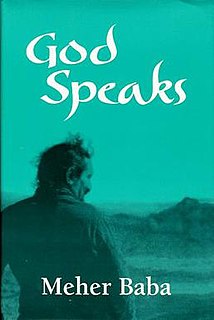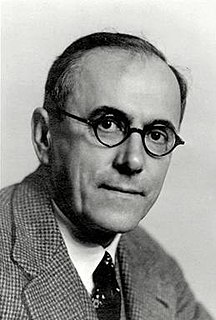This article is being considered for deletion in accordance with Wikipedia's deletion policy. Please share your thoughts on the matter at this article's entry on the Articles for deletion page. |
This article may rely excessively on sources too closely associated with the subject , potentially preventing the article from being verifiable and neutral.(September 2019) (Learn how and when to remove this template message) |
Mehera J. Irani | |
|---|---|
 | |
| Born | 7 January 1907 |
| Died | 20 May 1989 (aged 82) Meherazad, India |
| Title | Chief woman disciple to Meher Baba |
Mehera Jehangir Irani (7 January 1907 – 20 May 1989) was Meher Baba's closest mandali (disciple). Meher Baba said she was the purest soul in the universe and that she loved him as he ought to be loved. He called her his "Radha" and said, "She is my very breath without which I cannot live." Her accounts of her life with Meher Baba are documented in the three volume chronicle, Mehera-Meher: A Divine Romance, written by David Fenster, based on tape-recordings of Mehera he made during her lifetime. [1]

Meher Baba was an Indian spiritual master who said he was the Avatar, God in human form.
Mandali from the Sanskrit mandala meaning circle, connection, community, is a term that Meher Baba used for his closest disciples.

Radha, also called Radhika, Radharani, Radhe, Shyama, and Priya, is a Hindu goddess popular in Hinduism, especially in the Vaishnavism tradition. She is said to be the head of the milkmaids as Pradhan Gopika who resided in Braj Dham. She is the power potency of the supreme personality of Godhead Para Brahman, who is Shri Krishna according to Vaishnavite, and some specific translations of Bhagawatam and Padma Purana. She is the personification of pure devotional service unto Sri Krishna. She is thought of as the supreme Goddess in her own right and celebrated on the festive day of Radhastami.
Mehera met Meher Baba for the first time on 15 October 1922 at the age of 15 in the Sakori ashram of Upasni Maharaj during a visit with her mother, but did not come to stay with Baba permanently at Meherabad until 1924. Unique among Meher Baba's women mandali, Mehera was sequestered by Baba from contact with men. It was not until the late 1960s that Mehera J. Irani was permitted by Meher Baba to come out of her seclusion and meet some of the men mandali from a distance. On the porch at Meherazad, she simply folded her hands to them out of respect to their love for Baba and saluted them with "Jai Baba!" [2]

Sakori or Sakuri is a small village in the Ahmednagar district of Maharashtra State, India, about 5 kilometres (3 mi) south of Shirdi. Sakori is best known as the home of Hindu guru Upasni Maharaj and of his ashram, Kanya Kumari Sthan. It is located at 19°43′32″N74°28′41.18″E.

Upasni Maharaj, born Kashinath Govindrao Upasni, was considered by his disciples to be a satguru. He lived in Sakori, British India, and is said to have received God-realization from Sai Baba of Shirdi. Sakori is located in Ahmednagar District of Maharashtra, about 5 kilometres (3 mi) from Shirdi.

Meherabad was originally an ashram established by Meher Baba near Arangaon village, India in 1923 about 9 kilometres (6 mi) south of Ahmednagar. It is now the site of Meher Baba's samadhi (shrine/tomb) as well as facilities and accommodations for pilgrims. A large number of buildings mostly associated with the earlier decades of Baba’s work, the graves of disciples, and a range of pilgrim accommodation and charitable establishments are also there. Many Baba-lovers work or live in the vicinity. There is also a free dispensary and school.
Mehera was one of four women who accompanied Baba in his New Life period from 1949-1951. [3] In 1952 Mehera suffered a severe head injury in an automobile accident with Meher Baba near Prague, Oklahoma. [4]

The New Life was a period of renunciation, pilgrimage, and spiritual adventures undertaken by the Indian spiritual teacher Meher Baba on October 16, 1949. Baba selected twenty companions to join him in this self-described life of complete reliance on God, telling his companions, "Life during that period will be lived at the mercy of the world. It will be a life of complete helplessness and hopelessness."
Prague is a city in southeastern Lincoln County, Oklahoma, United States. The population was 2,386 at the 2010 census, an 11.6 percent increase from 2,138 at the 2000 census. Czech immigrants founded the city, and named it for the present-day capital of the Czech Republic with an altered pronunciation of the name.
In accordance with Meher Baba’s directive, Mehera’s final resting place is by his side, adjacent to his Samadhi.
Although Mehera was born in January, from 1968 her birthday has been celebrated on 22 December as it was in 1968 in accordance with the Zoroastrian calendar, that being the last year it was celebrated in Meher Baba's physical presence.
Adherents of Zoroastrianism use three distinct versions of traditional calendars for liturgical purposes, all derived from medieval Iranian calendars, ultimately based on the Babylonian calendar as used in the Achaemenid empire. "Qadimi" ("ancient") is a traditional reckoning introduced in 1006. "Shahanshahi" ("imperial") is a calendar reconstructed from the 10th-century text Denkard. "Fasli" is a term for a 1906 adaptation of the 11th-century Jalali calendar, following a proposal by Kharshedji Rustomji Cama made in the 1860s.










